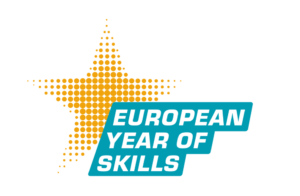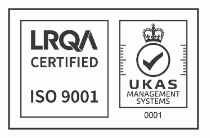Have you heard about European Years?
European years are essentially awareness campaigns on specific issues which encourage debate and dialogue within the EU. These campaigns mainly take the form of events which take place in different countries throughout the year. Moreover, many European years offer extra funding to local, national and cross-border projects that address the specific issue. This means that it is important to be aware of what the current European Year is when applying for a call, since incorporating that topic in your project could award you some bonus points.
Some of the more recent European years include:
The European Year of Skills – Addressing skill shortages in Europe
In her 2022 State of the Union address, Ursula von der Leyen, President of the European Commission, announced that 2023-2024 would be the European Year of Skills, with the aim of helping people to acquire the right skills for quality jobs, as well as supporting companies in addressing skill shortages in Europe. This is in line with the EU’s priorities to facilitate the green, digital, and social transitions in Europe and beyond.
The European Green Deal, The Digital Decade policy programme and The European Pillar of Social Rights Action Plan have set out ambitious targets for Europe, which will require European citizens to adapt and acquire new skills accordingly.

The European Green Deal is working on different sectors, such as Climate, Energy, Environment and oceans, Agriculture, Transport, and Research and Innovation. Through different EU funding programmes, such as Horizon Europe, projects are funded which focus on gaining knowledge and skills, as well as coming up with new technologies, to counteract climate change and other environmental-related problems.
The Digital Decade policy programme, for instance, is planning to have at least 20 million ICT Specialists by 2030, as well as a minimum of 80% of the European population having basic digital skills. This requires action both from a top-down and bottom-up approach, since policies need to be formulated, and training programmes need to be implemented to make sure that a larger percentage of European citizens in each other have at least basic digital skills.
As a way of tracking progress towards the Digital Decade goals, the European Commission publishes a State of the Digital Decade report every year, including a report on each country (See for instance, the Country reports – Digital Decade report 2023).
The European Pillar of Social Rights Action Plan outlines the EU’s ambition for a strong social Europe with an increased focus on jobs, skills and social inclusion. By 2030, at least 78% of people aged 20 to 64 should be in employment, at least 60% of all adults should participate in training every year, and at least 15 million fewer people should be at risk of poverty or social exclusion (including at least 5 million children), compared to 2019.
The European Year of Skills will thus act as an impetus to encourage all the EU Member States to contribute to the achievement of all the targets set out in the above plans.
A large number of events took place in various European countries between 2023 and 2024 to contribute to the values of the European Year of Skills.
One such event was the Transform-ED Conference hosted in Malta by the European Commission Representation in Malta in May 2023, which aimed at bringing together educators, expert trainers, thought leaders and industry players, to discuss the future of education in Europe. The conference focused on Games and AI in Education, featuring talks by Alexander Pfeiffer (Blockchain, AI and Digital Agents: Unlocking the Potential of Game-Based Learning and Assessment), Flavia H Santos (Classroom challenges: low numeracy, maths anxiety and digital transformation), amongst others, as well as a number of thematic breakout sessions.
Start-ups, companies and educators were also invited to participate in the exhibition at Casino Maltese. AcrossLimits attended the event on all 3 days to promote its services, both as a partner and writer of EU funded projects in education and technology, and representing our educational branch TrainingMalta.

The Closing event of the European Year of Skills was called “The European Year of Skills – what comes next?” and was held on 30 April 2024 in Brussels and online. This conference was an opportunity for hundreds of participants to share successful skills stories and discuss the legacy of the European Year of Skills, but also to discuss what will come next.
What will the next European Year be?
While the European Commission has not yet issued an official statement on what the next European Year will be, on September 29th 2023, during the 26th session of the Council of Europe Standing Conference of Ministers of Education, the Ministers of Education declared 2025 as the European Year of Digital Citizenship Education.
This means that EU member states will be tasked with:
- Raising awareness on digital citizenship and its importance in a democratic society
- Mainstreaming Digital Citizenship Education in education and training
- Involving diverse stakeholders in promoting digital citizenship education
- Facilitating exchange and collaboration
This topic will be a fitting follow-up to the European Year of Skills since it will focus on increasing the digital skills of citizens so that they are able to navigate digital environments in a safe and responsible way.
How has AcrossLimits contributed to the goals of the European Year of Skills?
At AcrossLimits we constantly contribute to the goals of the European Year of Skills by implementing projects which are skills-based, both in soft and in hard skills. Moreover, through our training branch TrainingMalta we provide a variety of courses related to educational technology, digital marketing and networking, business and entrepreneurship, as well as soft skills.
Our ongoing Alliances for Innovation project – Venture Alliances – focuses on increasing the entrepreneurship skills of academic researchers by matchmaking them with entrepreneurs and businesses, and providing both parties with masterclasses, workshops and courses to help them succeed in creating a joint venture. Check out our preparatory courses for businesses and academics by registering for free on our platform.
Our WIDERA project – ERA SHUTTLE – aims to identify research institutions’ strengths and weaknesses, improve research conditions, and attract and retain top research and innovation talent in the participating Widening countries. Through training and secondment opportunities, ERA SHUTTLE supports R&I talents from Malta, Poland and Croatia in increasing their capacity and widening their skill set to enhance research excellence, knowledge valorisation, and cross-sectoral collaboration.
Some of our past Erasmus+ projects have also focused on different skills. The PAITool project created an online course with 8 practical scenarios for AI deployment in enterprises, in order to help companies and their employees to increase their AI skills. The R.I.S.E. project aimed at increasing the employability of youths by providing them with soft skills training as well as an online course.
The MARS project was targeted at adult learners. It aimed at supporting individuals psychologically to help them to have a strong control mechanism to be solution-oriented in case of any crises, thus increasing their resilience skills. An e-learning platform with 12 training modules was created, as well as an e-book with information on lifelong learning approaches for adult educators.
The Becoming a Woman Coder project created an online training platform with resources about the IT sector in order to increase specific awareness about skills needed for IT jobs, and to tackle gender stereotypes and specific stereotypes of these professions. Since the main aim of the project is to increase more women in IT jobs, the training platform is divided into 3 sections, according to the profile of the person accessing it: a job counsellor, a woman looking for a new career in IT, or a person who trains job counsellors on how to do their job effectively.
AcrossLimits participates in several projects related to skills development, education, entrepreneurship, technology and others. Visit the projects section of our website to see what we are currently working on!
Our EU Funding and Proposal Development team is constantly working on proposal submissions for innovative projects within the EU, both for us as well as for our clients. If you have an intriguing project concept which you would like us to help you bring to life, either as writers or as part of a consortium, contact us on [email protected].



